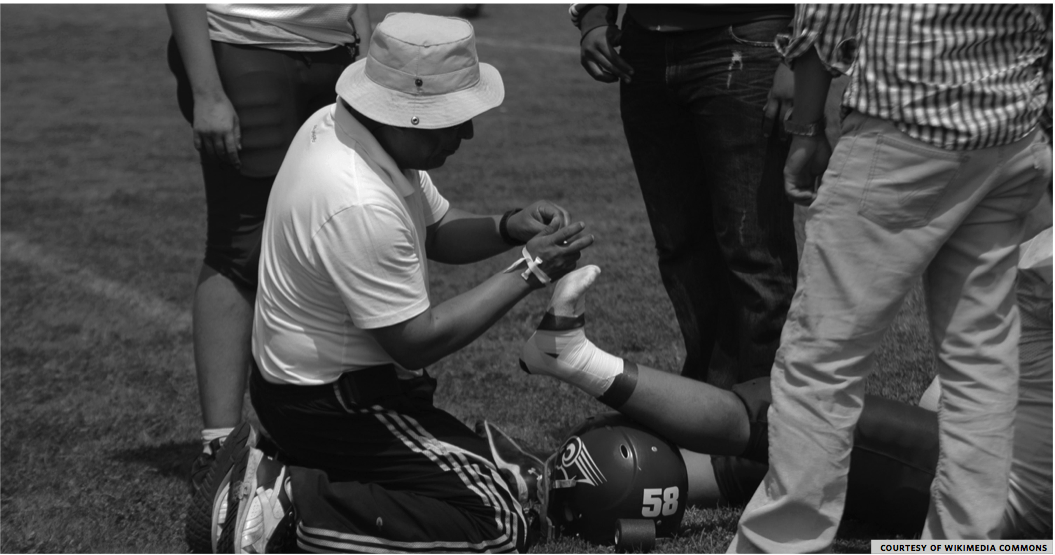
Most football players learn the game is done with them before they are done with the game.
Unfortunately for others, it is health concerns that force them to walk, or should I say, stagger away from the game. The mental and physical recovery process can be long and difficult because of the abruptness of the end.
In August 2006, I found myself at a training camp for the University of Guelph as a 17-year-old wide receiver. It was the culmination of years of hard work. As is the case with many young football players, I had an extensive injury history as well. To list only a few, I’d had several concussions, broken fingers, and a torn ligament in my left ankle.
As a player, I felt a lot of pressure to continue to perform at my high level, especially since I was not 100 per cent healthy. This is not uncommon, especially for smaller players who tend to need to prove their toughness much more than players with prototypical size.The pressure to play injured was partially self-imposed but a lot of it came from coaches, friends, and even family. In one instance, I remember being coerced into contact drills one week after sustaining a concussion because a coach asked me if I was a “pussy.”
As a football player, one gets used to playing through injuries so the dreaded label of being injury- prone is never applied to you. On top of this, a player also wants to avoid the scorn of his team- mates or coaches and always plays through pain if he feels he can.
had already been on a football field, he said people like me kept him in business. Nevertheless, during what I hoped would be the first of many Guelph training camps, it all finally came to an end.
While I was diving to catch a pass in a scrimmage, another player landed on my right ankle. I tore a ligament in my ankle and would never play again, save a brief two-practice stint with my local Ontario varsity football team.For me, it left an overwhelming sense of failure. From a young age, athletes are taught to play through injuries because they are warriors. I had always worn this asa badge of honour.
To pull myself out of a game or refuse to play when injured was almost unthinkable. This mentality is what led me to a permanent end and made it impossible for me to play.Instead of feeling proud of my accomplishments, I found myself ashamed by the way it all ended.In the years since that August when my football career ended, I have gained a different outlook. Maturity allowed me to feel less re- gretful, and more nostalgic about my playing days. Football has had many positive impacts on my life, giving me self-confidence where I may not have had any otherwise.
The minor pains lead me to my conflicted memory of football and the reason I decided to share this story.
I am now mature enough to realize that my body wouldn’t have endured the physical beating much longer, and it had nothing to do with being a “pussy.” I will more than likely have to deal with these medical issues for the rest of my life.
While I’ve moved on to other ambitions—pursuing an education and writing—I will always remem- ber and carry the game with me. But there is always that lingering question about the price I’ll have paid in the long run for our tes- tosterone and ego-driven football culture.
Ryan Scheiding
Contributor


